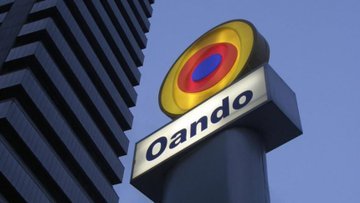Nigeria’s crude oil production recorded a notable rebound in July 2025, rising to 1.71 million barrels per day (bpd), according to data released by the Nigerian Upstream Petroleum Regulatory Commission (NUPRC).
This output comprised 1.507 million bpd of crude oil and 204,864 bpd of condensates, reflecting a 9.9 percent year-on-year (YOY) increase from the 1.56 million bpd achieved in July 2024.
On a month-on-month basis, July’s output showed a marginal rise of 0.89 percent compared to 1.69 million bpd in June 2025. The steady upward trajectory offers relief for Nigeria’s energy sector, which has struggled in recent years with crude theft, underinvestment, and pipeline vandalism.
Performance Across Oil Terminals
The NUPRC data revealed mixed performances across Nigeria’s major crude terminals in July. Forcados emerged as the top producer, delivering 9.04 million barrels, a 2.1 percent increase from 8.85 million barrels in June.
At the Bonny terminal, production rose sharply by 12.7 percent to 8.07 million barrels, compared to 7.16 million barrels in the previous month. In contrast, the Qua Iboe terminal saw a slight decline, dropping from 5.08 million barrels in June to 4.55 million barrels in July.
The Escravos terminal posted a 7.1 percent gain, rising from 4.17 million barrels to 4.47 million barrels. Similarly, Bonga increased output by 4.2 percent to 3.68 million barrels, while the Odudu (Amenam Blend) terminal recorded a 2.9 percent improvement to 2.12 million barrels.
Production at Tulja-Okwuibome edged up by 2.8 percent to 2.08 million barrels in July. Meanwhile, the Brass terminal recorded the most significant month-on-month growth, surging 27 percent from 877,975 barrels in June to 1.12 million barrels in July.
Oil Theft and Security Concerns
Despite the positive trend, Nigeria’s output remains below the 2025 federal budget target of 2.06 million bpd, which was premised on a benchmark oil price of $75 per barrel. Industry operators cite large-scale crude theft in the Niger Delta as a key obstacle to meeting this target.
Speaking at the Africa Chiefs of Defence Staff Conference in Abuja, NNPC’s Group Chief Executive Officer, Bayo Ojulari, stressed that crude theft is driven by sophisticated international and continental cartels. He explained that these networks exploit weaknesses in state and regional security frameworks to conduct illegal operations.
Ojulari, however, emphasized that recent military collaboration and intelligence efforts have curbed crude theft significantly. He noted that pipeline availability, once as low as 20 to 30 percent, is now approaching 100 percent due to enhanced protection by security agencies.
“Security forms a key pillar of the energy business and therefore plays a very important role in achieving national and continental energy goals,” Ojulari said. He added that the improved operating environment has already strengthened crude receipts at pipelines and terminals across the country.
Outlook for Nigeria’s Oil Economy
The recent rise in crude oil production provides a measure of optimism for Nigeria’s revenue outlook, though output still falls short of the government’s ambitious projections. Sustaining this growth will depend on continued security enforcement, investment in upstream assets, and policy reforms to attract international capital.
With oil accounting for the bulk of Nigeria’s foreign exchange earnings, stability in crude output remains central to achieving fiscal balance in 2025. The government’s ability to sustain production above 1.7 million bpd will therefore be critical for meeting budgetary expectations and boosting investor confidence in the sector.


























